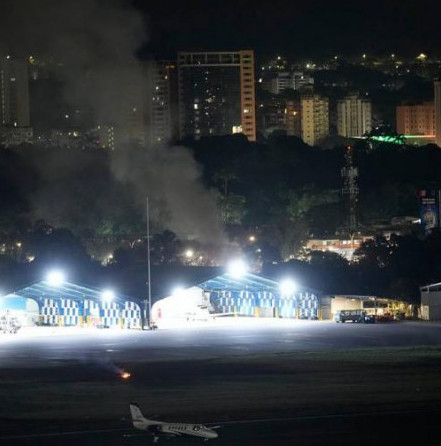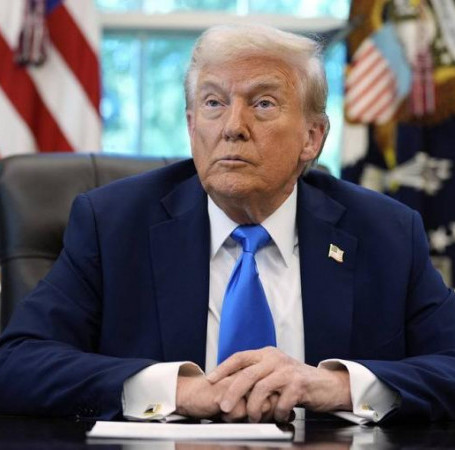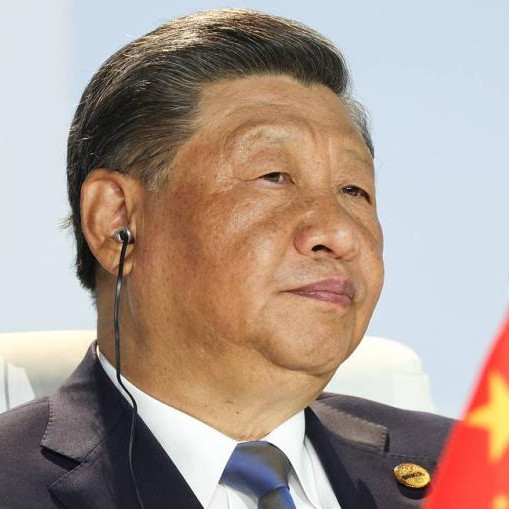The Ministry of Foreign Affairs of Japan declared on November 20, 2009 that the government document saying about illegal occupation of the Kurile Islands (Etorofu, Kunashiri, Shikotan and the Habomai group) by the Russian Federation had come into mass media by accident and was just an unapproved script...
But already on November 24, 2009 the “unapproved script” of the Japanese foreign department obtained the status of Tokyo’s official document confirming that the South Kuril Islands are "illegally occupied by the Russian Federation”.
This document is executed in answer to the inquiry of Muneo Suzuki, Chairman of the Foreign Affairs Committee of the House of Representatives of Japan, who took a stand for Japan’s active participation in economic projects on the South Kuril Islands, even if it is necessary for that end to “temporarily assent” to Russia’s right to governance of the islands. In response the government of the country entirely rejected this point of view. “The Russian Federation illegally occupies the four north islands,” the document says, whose text was received by the Ministry of Foreign Affairs of Japan. “In this situation our people’s travels there or participation in the islands development in the forms based on the Russian right precondition to their governance, do not conform to our country’s stand on the problem of north territories. There are no changes in this approach.”
The document also states that Tokyo allows its citizens to travel to the South Kuril Islands only in the present form of “visa-free exchanges”, particularly, for visiting graves and contacts between people.
“We ask the people for understanding and cooperation in order not to make all other trips until the problem of north territories is settled”, the document says. Its content shows that the new Cabinet of Japan formed last September after the general election win of the previously opposition Democratic Party, completely takes the line of previous leaders of the country in relation to the South Kuril Islands.
Head of the Russian Duma Foreign Affairs Committee Konstantin Kosachev said that Moscow will firmly react to Tokyo’s stand on the South Kuril Islands.
No legislative or other political initiatives of Japan concerning the Kurile Islands will make Russia change its position, said Ruslan Kondratov, member of the Committee for International Affairs of the Russian State Duma. Kondratov reminded that since last July Japan has actively raised a stink about the South Kuril Islands, calling thereby the world community to draw attention to this problem. Tokyo’s territorial claims will not make the world to reconsider the territorial results of the Second World War, because “otherwise one will have to reconsider the results of “redivision of the world” where a number of states participated, first of all – of the anti-Hitlerite allied coalition,” said the deputy.
"Russia more than once confirmed its readiness to carry on negotiations with Japan in this matter, but it is necessary to understand that the South Kuril Islands were part of the USSR, and its legal successor became Russia,” said Kondratov. “Our country considers the Kurile Islands as an important part of the Far East – and its development is now among the priority tasks of the state. That is why it is time to deviate from the subject of the islands’ reannexation to Japan once and for all,” said the deputy of the State Duma.
Earlier the Ministry of Foreign Affairs of Japan declared that the government document about illegal occupation of the Kurile Islands by the Russian Federation had come to mass media by accident and was just an unapproved script.
It will be recalled that the Kurile Islands passed under control of the USSR after the Second World War. This notwithstanding Japan still continues to pretend to several south islands of the Kurile string. By reason of impossibility of the settlement of territorial dispute between Russia and Japan, a treaty of peace still has not been signed between these countries, though as far back as 1956 the parties had signed a declaration providing for the end of the state of war, and on June 11 of this year Japan Parliament's Lower chamber recognized the Etorofu, Kunashiri, Shikotan, and the Habomai group an integral part of Japan.
In August 2009 the Ministry of Foreign Affairs of the Russian Federation officially declared that there is no longer a need for help, Japan has given from the beginning of the 1990s to municipal entities “Kurile urban district” and “South Kuril urban district” of Sakhalinskaya oblast. And the Japanese side was shown at that “sincere gratitude” for help, “favouring to overcome the social and economic problems on the South Kuril Islands, worsen due to the destructive earthquake in 1994.”
On November 11 of this year during preparation for the Sakhalinskaya oblast presentation in Japan that must have been held in Tokyo, the Japan side informed the oblast administration of the refusal to issue visas to Russian businessmen living in the South Kuril urban district, as well as in the Kuril region of Sakhalin. They were also told that their entry to territory of Japan with no visa required as islanders of the Kurile string was impossible. And beside that, Tokyo sent a signal of the undesirability of visits to Japan of the Russian entrepreneurs doing business on the Kuril Islands. In view of this situation, Russia had to adjourn the presentation.
“In case of formal accusation to the address of the Russian Federation of the so called “illegal occupation and retention of the Kurile Islands” the Government of Russia has the right to submit this question for consideration of the international community in the United Nations, and in addition to refer a claim to the International Court of Justice in The Hague,” said professor of the Eastern Institute, Doctor of Historical Sciences Analoly Koshkin.
He believes that the “artificial increasing territorial claims against neighbouring states by no means contributes to the creation of necessary conditions for the implementation of the actively supported by the new government of Japan idea of formation of the Eastern-Asian community. Such policy does not unite, but on the contrary disjoins the peoples and creates hostility between them.”
But already on November 24, 2009 the “unapproved script” of the Japanese foreign department obtained the status of Tokyo’s official document confirming that the South Kuril Islands are "illegally occupied by the Russian Federation”.
This document is executed in answer to the inquiry of Muneo Suzuki, Chairman of the Foreign Affairs Committee of the House of Representatives of Japan, who took a stand for Japan’s active participation in economic projects on the South Kuril Islands, even if it is necessary for that end to “temporarily assent” to Russia’s right to governance of the islands. In response the government of the country entirely rejected this point of view. “The Russian Federation illegally occupies the four north islands,” the document says, whose text was received by the Ministry of Foreign Affairs of Japan. “In this situation our people’s travels there or participation in the islands development in the forms based on the Russian right precondition to their governance, do not conform to our country’s stand on the problem of north territories. There are no changes in this approach.”
The document also states that Tokyo allows its citizens to travel to the South Kuril Islands only in the present form of “visa-free exchanges”, particularly, for visiting graves and contacts between people.
“We ask the people for understanding and cooperation in order not to make all other trips until the problem of north territories is settled”, the document says. Its content shows that the new Cabinet of Japan formed last September after the general election win of the previously opposition Democratic Party, completely takes the line of previous leaders of the country in relation to the South Kuril Islands.
Head of the Russian Duma Foreign Affairs Committee Konstantin Kosachev said that Moscow will firmly react to Tokyo’s stand on the South Kuril Islands.
No legislative or other political initiatives of Japan concerning the Kurile Islands will make Russia change its position, said Ruslan Kondratov, member of the Committee for International Affairs of the Russian State Duma. Kondratov reminded that since last July Japan has actively raised a stink about the South Kuril Islands, calling thereby the world community to draw attention to this problem. Tokyo’s territorial claims will not make the world to reconsider the territorial results of the Second World War, because “otherwise one will have to reconsider the results of “redivision of the world” where a number of states participated, first of all – of the anti-Hitlerite allied coalition,” said the deputy.
"Russia more than once confirmed its readiness to carry on negotiations with Japan in this matter, but it is necessary to understand that the South Kuril Islands were part of the USSR, and its legal successor became Russia,” said Kondratov. “Our country considers the Kurile Islands as an important part of the Far East – and its development is now among the priority tasks of the state. That is why it is time to deviate from the subject of the islands’ reannexation to Japan once and for all,” said the deputy of the State Duma.
Earlier the Ministry of Foreign Affairs of Japan declared that the government document about illegal occupation of the Kurile Islands by the Russian Federation had come to mass media by accident and was just an unapproved script.
It will be recalled that the Kurile Islands passed under control of the USSR after the Second World War. This notwithstanding Japan still continues to pretend to several south islands of the Kurile string. By reason of impossibility of the settlement of territorial dispute between Russia and Japan, a treaty of peace still has not been signed between these countries, though as far back as 1956 the parties had signed a declaration providing for the end of the state of war, and on June 11 of this year Japan Parliament's Lower chamber recognized the Etorofu, Kunashiri, Shikotan, and the Habomai group an integral part of Japan.
In August 2009 the Ministry of Foreign Affairs of the Russian Federation officially declared that there is no longer a need for help, Japan has given from the beginning of the 1990s to municipal entities “Kurile urban district” and “South Kuril urban district” of Sakhalinskaya oblast. And the Japanese side was shown at that “sincere gratitude” for help, “favouring to overcome the social and economic problems on the South Kuril Islands, worsen due to the destructive earthquake in 1994.”
On November 11 of this year during preparation for the Sakhalinskaya oblast presentation in Japan that must have been held in Tokyo, the Japan side informed the oblast administration of the refusal to issue visas to Russian businessmen living in the South Kuril urban district, as well as in the Kuril region of Sakhalin. They were also told that their entry to territory of Japan with no visa required as islanders of the Kurile string was impossible. And beside that, Tokyo sent a signal of the undesirability of visits to Japan of the Russian entrepreneurs doing business on the Kuril Islands. In view of this situation, Russia had to adjourn the presentation.
“In case of formal accusation to the address of the Russian Federation of the so called “illegal occupation and retention of the Kurile Islands” the Government of Russia has the right to submit this question for consideration of the international community in the United Nations, and in addition to refer a claim to the International Court of Justice in The Hague,” said professor of the Eastern Institute, Doctor of Historical Sciences Analoly Koshkin.
He believes that the “artificial increasing territorial claims against neighbouring states by no means contributes to the creation of necessary conditions for the implementation of the actively supported by the new government of Japan idea of formation of the Eastern-Asian community. Such policy does not unite, but on the contrary disjoins the peoples and creates hostility between them.”



